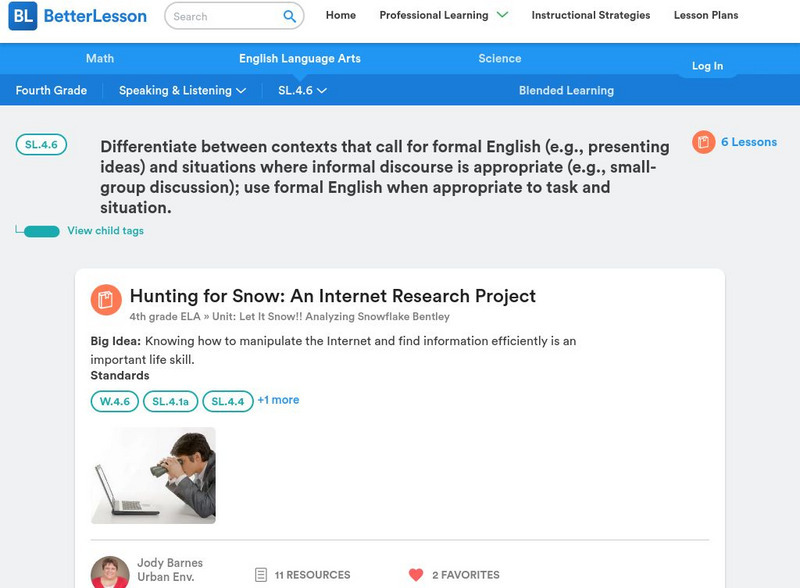Robin L. Simmons
Grammar Bytes: Pronoun Shift Power Point
Learn about using pronouns consistently and practice identifying them in questions that could be found on standardized tests.
Robin L. Simmons
Grammar Bytes: Subject Verb Agreement Power Point
Learn about subject-verb agreement and practice identifying correct agreement in questions that could be found on standardized tests.
Robin L. Simmons
Grammar Bytes: Verb Forms Power Point
Learn about regular and irregular verbs and practice identifying correct verb usage in questions that could be found on standardized tests.
Other
Live Worksheets: Question Words
This interactive worksheet features interrogative sentences with missing question words. Students will type in one of following words or phrases into each sentence: who, what, where, why, when, how, and more. Students will then submit...
Towson University
Towson University: Ows: Prepositions Exercise 1
This is a 10-question, self-grading exercise/quiz on using the correct Prepositions for each sentence. It is suitable for ESL as well as regular English classes.
British Council
British Council: Prepositions of Place
Examples, printable activities, and two online games to use while learning about prepositions of place.
Robin L. Simmons
Grammar Bytes: Presentations: Confused and Misused Words and Phrases Power Point
A PowerPoint slide reviewing the proper usage of commonly confused and misused words. Questions that may be found on standardized tests are included.
ReadWriteThink
Read Write Think: Developing, Writing, and Evaluating Persuasive Speeches
Contains plans for four lessons that teach students how to make and present strong persuasive speeches. In addition to objectives and standards, this instructional plan contains links to sites used in the lessons as well as assessment...
E Reading Worksheets
E Reading Worksheets: Preposition Worksheets
In this learning module, students will learn more about prepositions. Video lessons, online practice links, and reinforcement worksheets are provided. This module is designed to support Tier I, Tier II, and Tier III students in various...
E Reading Worksheets
E Reading Worksheets: Parts of Speech Activities
In this learning module, students will learn more about the eight parts of speech. Lesson plans and reinforcement worksheets are provided. This module is designed to support Tier I, Tier II, and Tier III students in various grade bands.
Grammarly
Grammarly Blog: What Are Prepositions?
This page defines prepositions and provides examples.
Grammarly
Grammarly Blog: Uses of Prepositions
This page explains the uses of prepositions including to show direction, time, location, and spatial relationships. Examples are provided.
Grammarly
Grammarly Blog: Unnecessary Preposition
This page explains that changes in usage over time makes the use of prepostions in certain instances unnecessary. While they are not technically incorrect, they lead to wordiness and should not be used. Examples are provided.
Other
Thoughtful Learning: Minilesson: Asking and Answering the 5 W's and H Questions
Students will learn the "5 W's and H questions" needed to comprehend a news story. Then students will apply these question words [who, what, where, why, when, and how] to real news stories and to events in their own lives.
Other
Pitner's Potpourri: Formal and Informal Language
A Common Core teacher resource provides an approach to educating students on the differences between formal and informal language.
Sophia Learning
Sophia: Elements of an Effective Argument
Discussion focuses on understanding the three academic language objectives that make an effective argument: understand the concept of a thesis statement, the significance of writing an argument with an audience in mind, and the...
Other
Match the Memory: Formal vs Informal Language
Match the Memory Interactive game where players match a word to either formal or informal language.
Wisc-Online
Wisc Online: Special Nouns Practice
In this practice execise, students will identify nouns referring to qualities, ideas, and emotions.
Other
Ncsall: Relationship Between Reading and Speaking
The interview discusses the relationship between reading and speaking.
Education.com
Education.com: W.4.2.d Worksheets: Use Precise Language and Vocabulary
[Free Registration/Login Required] A site with links to 4 worksheets that can be downloaded and printed for student use while building skills with standard W.4.2.D: Use precise language and domain specific vocabulary to inform about or...
Better Lesson
Better Lesson: W.4.2c: Link Ideas Within Categories of Information
Links to 4 lessons and activities that build student skills in standard W.4.2c: Link ideas within categories of information using words and phrases (e.g., example, also, because).
BBC
Bbc: Voices: Schools: Speech Styles and Standard English [Pdf]
Some activities to do with students to help them understand about dialects and accents. Presents a poem written phonetically with a Londoner's accent, two more poems with lesson ideas, and a story with some non-standard English words...
Better Lesson
Better Lesson: Sl.4.6: Differentiate Between Formal and Informal English Contexts
Links to 6 lessons and activities that build student skills in standard SL.4.6: Differentiate between contexts that call for formal English (e.g., presenting ideas) and situations where informal discourse is appropriate (e.g., small...
Better Lesson
Better Lesson: Sl.4.4: Orally Report on a Topic or Text
Links to 75 lessons and activities that build student skills in standard SL.4.4: Report on a topic or text, tell a story, or recount an experience in an organized manner, using appropriate facts and relevant, descriptive details to...




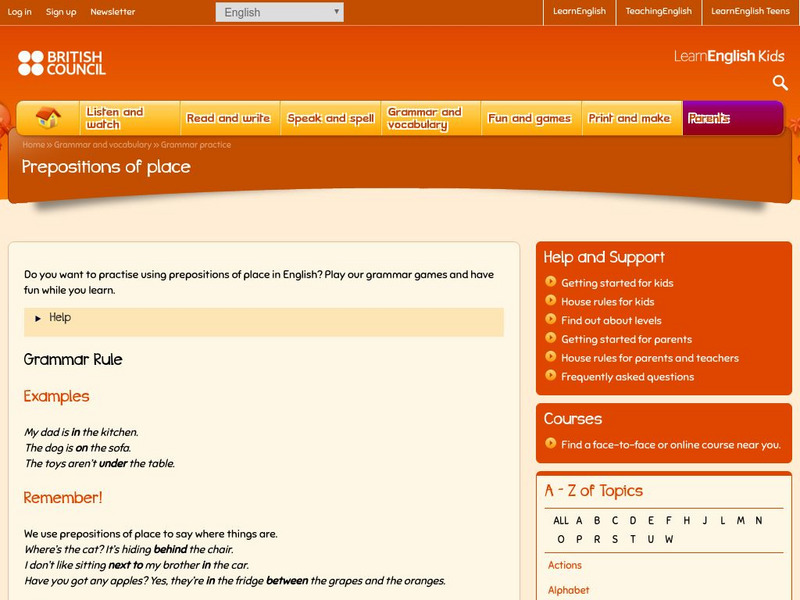


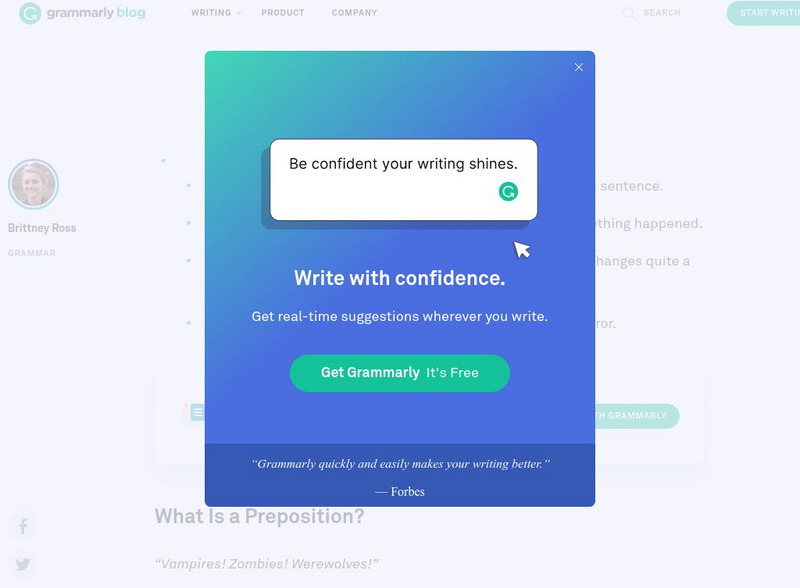





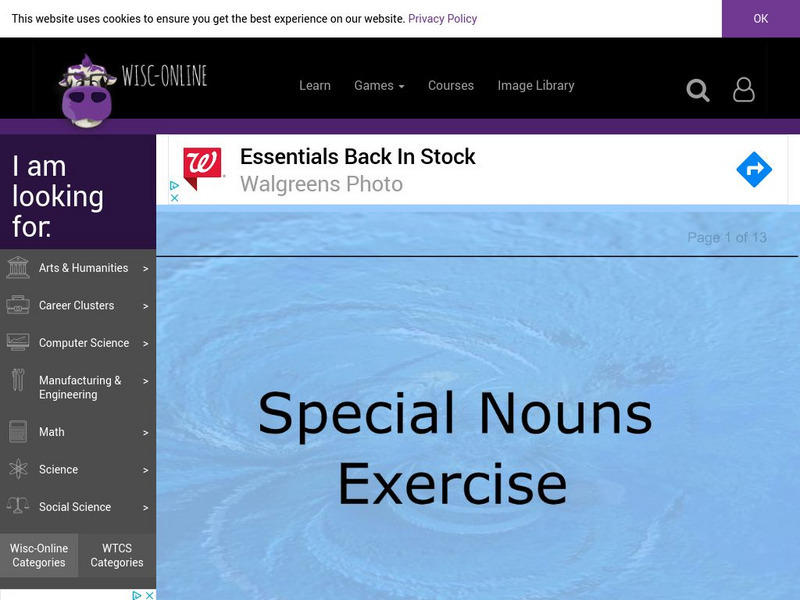

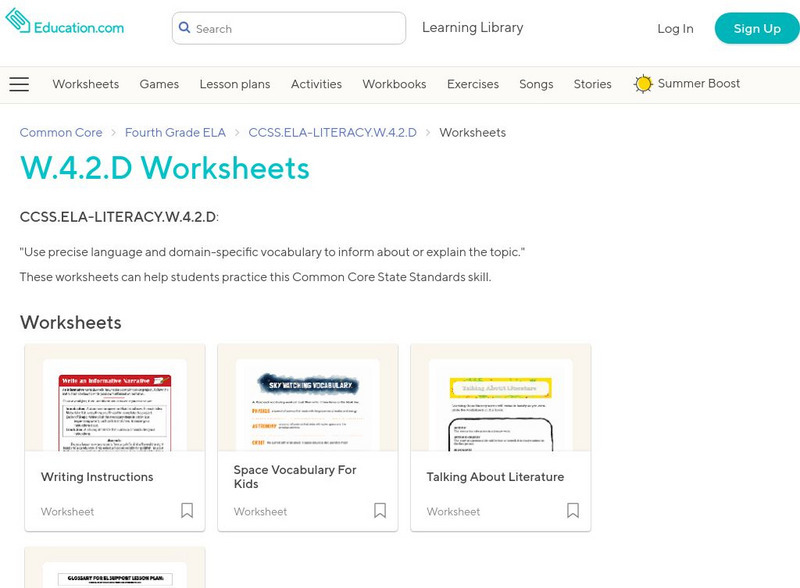

![Bbc: Voices: Schools: Speech Styles and Standard English [Pdf] Activity Bbc: Voices: Schools: Speech Styles and Standard English [Pdf] Activity](http://content.lessonplanet.com/resources/thumbnails/411270/large/bwluav9tywdpy2symdiwmduymc0ymtm3ns0xdzc0addilmpwzw.jpg?1589993559)
